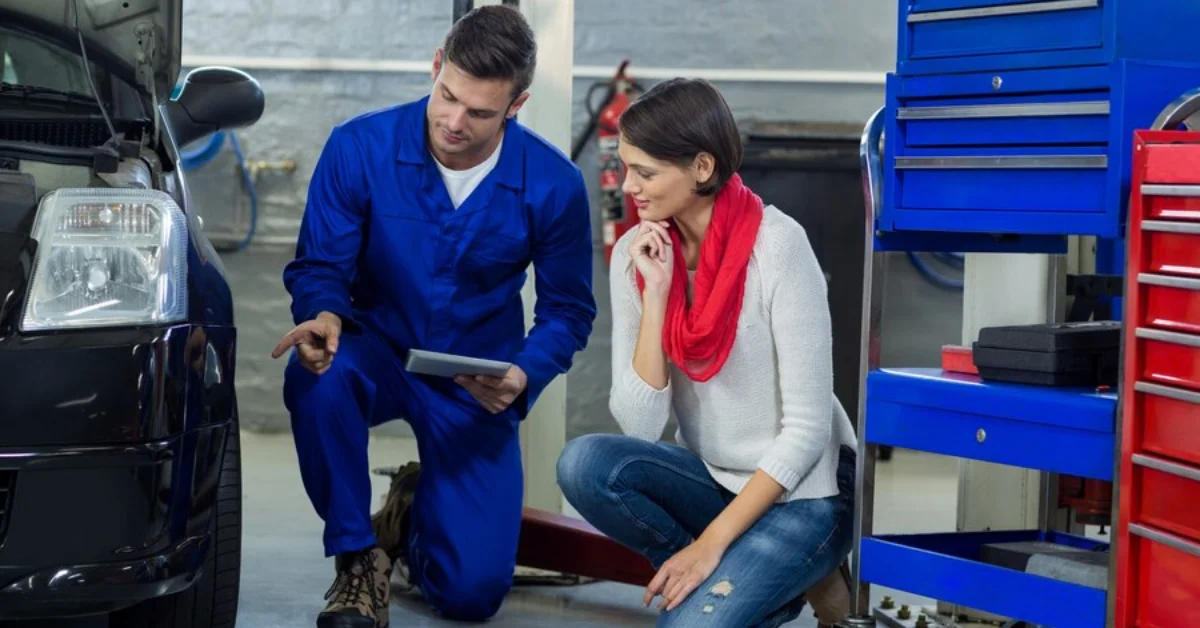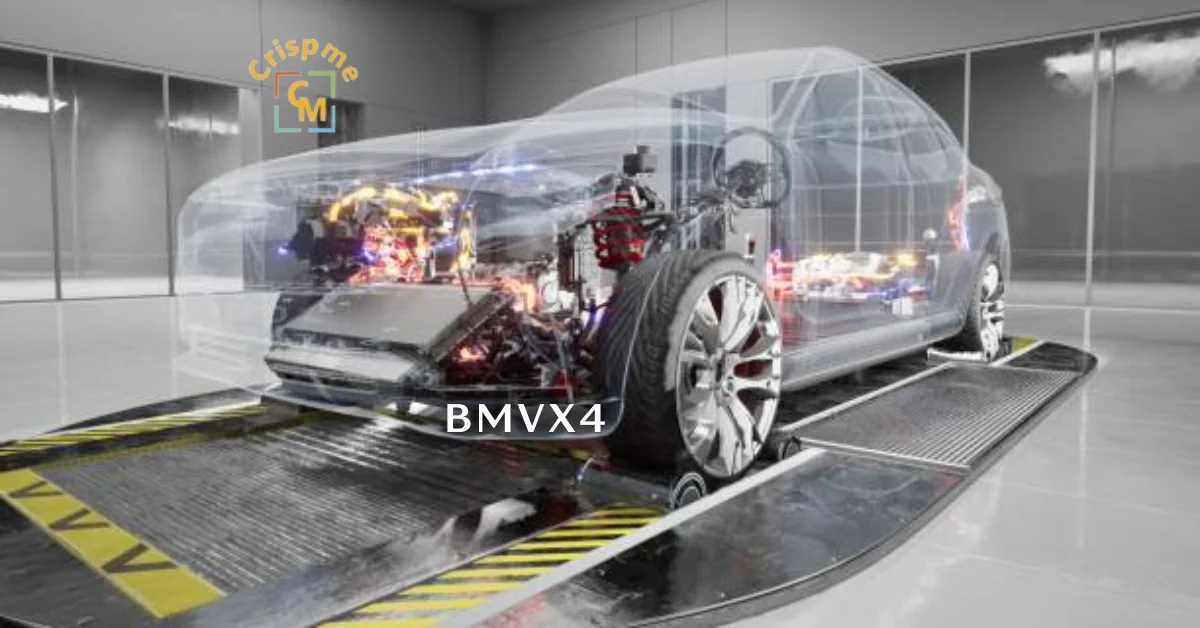AUTOMOTIVE
Essential Car Maintenance Tips for Used Car Owners

How do you keep your car running smoothly? Have you just bought a used car and want to ensure it stays in top condition? Proper car upkeep is key to enjoying your vehicle for years to come. In this article, we’ll go over essential maintenance tips that will help you extend the life of your ride.
ALSO READ: Make1M McLaren: Ultimate Luxury Meets Ambition
Start with the Basics: Regular Fluid Checks
When buying a used car, it’s easy to overlook simple fluid levels, but they’re crucial for the health of your vehicle. Oil, coolant, brake fluid, and transmission fluid are vital in keeping your car running efficiently. Regularly check these fluids to avoid overheating, poor engine performance, and other potential issues.
Engine oil is the most important fluid to monitor. Make sure it’s changed regularly—typically every 3,000 to 5,000 miles. Check for leaks or low levels, as running low on oil can cause engine damage. Don’t forget about other fluids like brake fluid or power steering fluid; replacing them on time prevents unnecessary repairs down the road.
Tire Care: Ensure Longevity and Safety
Tires are crucial in ensuring a vehicle’s safety. Neglecting them can lead to dangerous driving conditions. Start by checking tire pressure regularly. Under-inflated tires wear out faster and can affect your vehicle’s fuel efficiency. Make sure to follow the recommended pressure levels found in the owner’s manual.
Also, don’t skip tire rotations. Rotating tires every 6,000 miles helps ensure even wear. Be sure to inspect the tread for signs of damage. Worn-out tires can decrease traction, especially during wet conditions.
Brake System: Stay Safe with Regular Inspections
Your vehicle’s braking system is essential for your safety. Check the brake pads every 10,000 to 20,000 miles, especially if you hear squeaking or grinding noises. These sounds usually demonstrate run-down brake pads that require replacing.
Additionally, check the brake fluid levels and ensure the braking system is responsive. If you notice any issues, such as a soft brake pedal or vibration when braking, have a professional take a look as soon as possible. Keeping the brakes in good shape is essential for preventing accidents and maintaining peace of mind.
Battery Maintenance: Keep It Powered Up
Battery Lifespan
Car batteries generally last three to five years, depending on use and environment. If your vehicle struggles to start, it could be a sign the battery needs replacing.
Annual Battery Testing
Having your battery tested once a year, especially as it ages, helps catch potential issues before they affect your car’s performance. Early detection can prevent sudden breakdowns.
Corrosion Check
Inspect the battery terminals for any corrosion. Corrosion can create resistance and prevent the battery from charging properly, which might cause starting issues.
Cleaning Corrosion
Clean it carefully with baking soda and water if you find corrosion. Always wear gloves and avoid direct contact with the chemicals to ensure safety.
Secure Battery Placement
Ensure your battery is adequately secured in place. Loose batteries can suffer from vibrations, damaging internal components and reducing battery life.
Buying a used car can be an exciting adventure, but it comes with the responsibility of caring for your investment. Maintenance of your vehicle is not just about avoiding breakdowns—it’s about ensuring it remains reliable, efficient, and ready for whatever comes your way. The effort you put in today can save you from big headaches tomorrow!
AUTOMOTIVE
Why F&I Training is Important For Automotive Dealerships In The USA

In the realm of automotive sales, the Finance and Insurance (F&I) department serves as a crucial nexus between customers and dealerships. It’s the bridge where financial transactions are sealed, and customer satisfaction is solidified. In today’s competitive market, where customer expectations are higher than ever, the significance of well-trained F&I professionals cannot be overstated. Let’s delve into why F&I training is not just beneficial but essential for automotive dealerships aiming to thrive in the modern landscape.
Finance Manager Training, accredited by the Bureau of Proprietary F&I Training School Supervision, specializes in educating future F&I Managers for automotive, RV, and powersports dealerships.
Expertise Breeds Confidence
In the intricate world of automotive financing and insurance, knowledge is power. F&I professionals equipped with comprehensive training exude confidence and authority. They can effortlessly navigate through complex financing options, explain intricate insurance policies, and address customer queries with clarity. This expertise doesn’t just inspire trust; it instills confidence in customers, assuring them that they’re making well-informed decisions. Consequently, confident customers are more likely to proceed with purchases, ultimately driving sales and enhancing dealership profitability.
Compliance and Risk Mitigation
The regulatory landscape governing automotive financing and insurance is constantly evolving. From consumer protection laws to compliance requirements imposed by lending institutions, staying abreast of these regulations is paramount. F&I training programs not only educate professionals about existing laws but also provide insights into emerging trends and regulatory changes. By ensuring adherence to compliance standards, F&I training mitigates legal risks for dealerships, shielding them from costly penalties and litigations that could tarnish their reputation and financial standing.
Upselling and Maximizing Revenue
An adept F&I professional isn’t just a facilitator of transactions; they are also skilled at uncovering opportunities to enhance revenue. Through upselling supplementary products such as extended warranties, maintenance plans, or gap insurance, F&I managers can significantly augment dealership profits. However, the art of upselling requires finesse and persuasion, traits honed through targeted training programs. By equipping F&I staff with upselling techniques and product knowledge, dealerships can capitalize on revenue-generating opportunities without compromising customer satisfaction.
Enhancing Customer Experience
In an era dominated by customer-centricity, delivering exceptional experiences is imperative for sustaining competitive advantage. The F&I process, often perceived as a bottleneck, presents a prime opportunity to delight customers. Well-trained F&I professionals understand the significance of a seamless and personalized experience. By cultivating rapport, actively listening to customer needs, and offering tailored solutions, they transform mundane transactions into memorable interactions. These positive experiences not only foster customer loyalty but also generate favorable word-of-mouth referrals, amplifying dealership reputation and goodwill.
Continuous Improvement and Adaptability
The automotive industry is dynamic, characterized by evolving consumer preferences, technological advancements, and market disruptions. In this landscape of constant flux, static knowledge quickly becomes obsolete. F&I training isn’t a one-time event but a continuous journey of learning and adaptation. Dealerships that prioritize ongoing training initiatives empower their F&I teams to stay ahead of the curve. Whether it’s mastering new digital tools, understanding emerging financing models, or embracing innovative sales strategies, continuous training fosters agility and resilience, enabling dealerships to thrive amidst change.
In conclusion, F&I training isn’t merely an investment; it’s a strategic imperative for automotive dealerships committed to success. By equipping F&I professionals with the requisite skills, knowledge, and confidence, dealerships elevate their proficiency, enhance customer satisfaction, and drive profitability. In an industry where margins are razor-thin and competition is fierce, the difference between mediocrity and excellence often lies in the caliber of F&I training. As automotive retail continues to evolve, those who embrace the transformative power of education will emerge as industry leaders, charting a course towards sustained growth and prosperity.
AUTOMOTIVE
BMVX4: The Innovation Driving Accuracy and Automation

Introduction to BMVX4
In a world where precision and efficiency reign supreme, the BMVX4 emerges as a game changer. This innovative technology is not just another tool; it’s a leap forward in automation that promises to enhance accuracy across various sectors. Imagine streamlined processes, reduced errors, and an overall boost in productivity all thanks to this remarkable advancement. As industries continue to evolve and embrace digital transformation, understanding how BMVX4 works and its potential impact becomes essential. Buckle up as we explore the ins and outs of this groundbreaking innovation driving the future of automation!
What is BMVX4 and How Does it Work?
BMVX4 is a cutting-edge technology designed to enhance precision and automate processes across various sectors. At its core, BMVX4 utilizes advanced algorithms and real-time data analysis to optimize performance.
This innovative system integrates seamlessly with existing infrastructure. It collects vast amounts of information from multiple sources, ensuring every decision is based on accurate data.
The mechanics behind BMVX4 involve machine learning and artificial intelligence. These components enable the system to adapt over time, improving efficiency without human intervention.
Users can customize BMVX4 according to their specific needs. This flexibility allows companies to apply it in manufacturing, logistics, healthcare, and more.
With user-friendly interfaces and robust support systems, organizations find it easy to implement BMVX4 into their workflows. The result? A streamlined operation that minimizes errors while maximizing productivity.
Benefits of Using BMVX4 in Different Industries
BMVX4 offers transformative benefits across various industries. In manufacturing, its precision enhances production lines, minimizing errors and reducing waste. This leads to significant cost savings.
In healthcare, BMVX4 streamlines operations through accurate data management. It aids in patient record keeping and improves diagnostic accuracy, ensuring better outcomes for patients.
The finance sector also gains from BMVX4’s automation capabilities. With its ability to analyze vast datasets quickly, it helps institutions make informed decisions while mitigating risks.
Retail businesses benefit greatly too. By implementing BMVX4 technology, they can personalize customer experiences based on real-time analytics and inventory tracking.
Logistics companies leverage BMVX4 for efficient route planning and delivery scheduling. This ensures timely shipments while optimizing fuel costs and resources used in the process.
Case Studies: Real-Life Examples of BMVX4 in Action
BMVX4 has made waves in various sectors, showcasing its versatility and effectiveness. In the manufacturing industry, a leading automotive company integrated BMVX4 to streamline their assembly line processes. The result was a remarkable reduction in errors and an increase in production speed.
Another compelling example comes from healthcare. A hospital utilized BMVX4 for patient data management. This innovation enhanced accuracy in record-keeping, allowing medical staff to focus more on patient care rather than administrative tasks.
In retail, one major chain employed BMVX4 for inventory tracking. By automating stock management, they minimized waste and optimized supply chains significantly.
These case studies highlight how BMVX4 is not just theoretical; it delivers practical results that transform operations across diverse fields. Each instance serves as evidence of its potential to redefine accuracy and efficiency.
The Future of Automation with BMVX4
The future of automation is bright, especially with BMVX4 at the forefront. This technology promises to redefine operational efficiency across various sectors.
As industries embrace smart solutions, BMVX4 stands out by integrating advanced algorithms that enhance decision-making. The ability to process vast amounts of data in real-time sets it apart from traditional systems.
Moreover, its adaptability makes it suitable for diverse applications—from healthcare diagnostics to manufacturing precision. Businesses can expect improved accuracy and reduced errors as they implement this innovative tool.
Collaboration between humans and machines will evolve significantly too. With BMVX4 handling routine tasks, professionals can focus on strategic initiatives and creative problem-solving.
As we look ahead, continuous advancements in artificial intelligence will further amplify the capabilities of BMVX4. Companies investing in this technology are likely to lead their industries into a new era of productivity and innovation.
Challenges and Limitations of BMVX4
While BMVX4’s offers remarkable advancements, it is not without its challenges. One significant limitation is the initial cost of implementation. Businesses may find the investment daunting, especially small to medium enterprises.
Integration with existing systems can also pose difficulties. Many organizations rely on legacy software that may not be compatible with BMVX4’s advanced features. This can lead to increased downtime and additional costs during transition phases.
There are also growing worries about protecting data and maintaining security. As BMVX4’s automates processes using large volumes of sensitive information, safeguarding this data becomes critical. Any security lapse could seriously damage confidence in the technology.
Furthermore, users must invest time in training staff to fully utilize BMVX4’s capabilities. Without proper training, companies risk underutilizing this powerful tool or facing operational hiccups due to misunderstandings about its functions.
Conclusion: The Impact of BMVX4 on Accuracy and Automation
The BMVX4’s stands out as a transformative force in the realms of accuracy and automation. Its innovative technology redefines how industries operate, allowing for heightened precision that was previously unattainable. Businesses leveraging BMVX4’s see significant improvements in efficiency, enabling them to focus on core tasks while reducing human error.
As more sectors embrace this cutting-edge solution, it’s evident that the future of automation is bright. The potential applications are vast, from manufacturing to healthcare and beyond. Each industry can tailor BMVX4’s capabilities to meet their unique needs.
Despite its advantages, challenges remain. Integration into existing systems may pose difficulties, and understanding the full scope of its functionalities requires training and adaptation. Nevertheless, these hurdles do not overshadow the benefits offered by BMVX4’s.
As organizations continue to invest in technologies like BMVX4’s, we can anticipate a significant shift towards greater accuracy and streamlined processes across various fields. This innovation promises to pave the way for enhanced productivity and competitiveness in an increasingly automated world.
AUTOMOTIVE
Electric Outboard Motors: The Clean, Quiet, and Smarter Future of Boating

Boating enthusiasts around the world are witnessing a major shift in marine propulsion, and at the center of this transformation are electric outboard motors. These motors have rapidly gained popularity due to their efficiency, environmental benefits, low maintenance, and advanced performance capabilities. As technology continues to push boundaries, electric propulsion is not just an alternative to gas-powered engines—it is becoming the preferred choice for a new era of clean and sustainable boating.
Today, we explore everything you need to know about electric boating, why so many boaters are switching, and where to find premium electric outboard boat motors from trusted brands. This guide is designed to help you make a confident and informed decision while enhancing your boating experience for years to come.
What Are Electric Outboard Motors?
Electric outboard motors are propulsion systems powered by battery-stored electricity rather than gasoline. They use high-efficiency electric motors to drive a propeller, delivering smooth, silent, and eco-friendly performance on the water. Because they eliminate fuel combustion, they avoid the fumes, noise, and pollution common with traditional motors.
These motors have evolved significantly over the past decade, becoming more powerful, compact, and technologically advanced. Today’s designs offer:
- High torque output
- Long battery life
- Durable marine-grade construction
- Smart digital controls
- Fast charging capabilities
This combination makes them ideal for fishing boats, inflatable dinghies, pontoons, sailboats, small crafts, and more.
Why Electric Outboard Motors Are the Future of Boating
1. Zero Emissions and Eco-Friendly Operation
More lakes, rivers, and protected marine zones are regulating or banning combustion engines due to pollution. Electric outboard motors help boaters meet environmental standards without compromising performance. With zero emissions, they protect water quality, marine animals, and air purity.
2. Quiet and Smooth Ride
Noise is one of the biggest drawbacks of gas-powered engines. Electric motors eliminate engine roar—providing whisper-quiet performance. This is perfect for fishing, wildlife observation, relaxing cruises, and early morning rides.
3. Low Maintenance and Long Lifespan
Electric motors contain fewer moving parts than combustion engines. That means:
- No oil changes
- No spark plugs
- No carburetor issues
- No fuel filters
- No exhaust leaks
This results in significantly lower maintenance costs and fewer mechanical problems over time.
4. Lower Operating Costs
Electricity is far cheaper than gasoline. Combined with low maintenance needs, electric outboard boat motors offer exceptional long-term savings.
5. Instant Torque for Strong Acceleration
Electric motors deliver power instantly. Unlike gasoline engines that build power gradually, electric propulsion offers immediate thrust—ideal for quick takeoff, steering control, and smooth maneuvering.
How to Choose the Right Electric Outboard Motor
If you are planning to invest in electric outboard motors, consider the following factors to ensure optimal performance:
Battery Type and Capacity
Lithium-ion batteries are the industry standard thanks to their:
- Lightweight build
- Faster charging
- Longer lifespan
- Higher energy density
Choose a battery with enough capacity (measured in kWh or Ah) to support your typical boating duration.
Motor Power (kW / HP Equivalent)
Electric motors are rated in kilowatts, but many manufacturers provide horsepower equivalents. Match the motor power to your boat’s size, weight, and intended use.
Boat Size and Load
Larger boats require more thrust. Always select a motor designed to handle your typical passenger load and equipment weight.
Range and Runtime
Runtime depends on battery size and speed. For long journeys, consider portable backup batteries or high-capacity lithium packs.
Charging Options
Many motors now include:
- Fast chargers
- Solar charging compatibility
- Regenerative systems (on some hybrid models)
Choose a charging setup that aligns with your lifestyle and boating frequency.
Top Choice for High-Quality Electric Outboard Boat Motors
For boaters who want premium performance, durability, and smart engineering, Scott Electric Outboard is one of the most trusted names in the industry. Their lineup offers industry-leading efficiency and reliable long-term performance.
Whether you need a compact motor for a tender or a high-powered system for a larger craft, Scott Electric Outboard offers top-rated solutions backed by expert support.
Benefits of Choosing Scott Electric Outboard Motors
Scott Electric Outboard has earned a strong reputation for delivering modern, reliable, high-performance motors. Here’s why boaters trust them:
1. Superior Efficiency
Their motors are designed to maximize power output while extending runtime—allowing more hours on the water per charge.
2. Long-Lasting Marine-Grade Construction
Built with corrosion-resistant materials, these motors perform reliably in both fresh and saltwater conditions.
3. Smart Digital Features
Many models include:
- LED battery indicators
- Smart throttle systems
- GPS-integrated control
- Safety features like low-battery alerts
4. Eco-Friendly and Quiet
These motors are perfect for fishing, island hopping, wildlife tours, and recreational boating.
5. Trusted Mercury Electric Options
Their Mercury electric outboard lineup offers cutting-edge innovation with unmatched marine engineering quality.
Electric Outboard Motors vs. Gasoline Motors: Which Is Better?
Below is a comparison to help you evaluate the best choice for your needs:
| Feature | Electric Motors | Gas Motors |
| Noise Level | Ultra-quiet | Loud |
| Emissions | Zero | High |
| Maintenance | Very low | High |
| Operating Cost | Very low | Expensive |
| Lifespan | Long | Moderate |
| Eco-Friendly | Yes | No |
| Starting System | Instant start | Manual/electric start |
| Vibration | Minimal | High |
For most recreational users, electric motors offer superior advantages in comfort, reliability, and sustainability.
Applications of Electric Outboard Boat Motors
Electric propulsion is suitable for a wide variety of boating activities:
- Fishing trips
- Family cruising
- Dinghies & tenders
- Kayaks and inflatable boats
- Pontoons
- Sailboats (as auxiliary motors)
- Resorts & eco-tourism operations
- Rental fleets
- Wildlife and photography tours
Their silent performance and eco-friendly design make them ideal for peaceful and protected waters.
Final Thoughts: Why Now Is the Best Time to Go Electric
With rising fuel prices, tighter environmental regulations, and rapid advancements in battery technology, investing in electric outboard motors is one of the smartest boating decisions you can make today. These motors offer unmatched efficiency, quiet performance, and long-term savings—all while helping protect the environment.
Explore more articles built to elevate your mindset and unlock new possibilities.

 BUSINESS1 year ago
BUSINESS1 year agoExploring the Benefits of Commercial Printing

 HOME IMPROVEMENT12 months ago
HOME IMPROVEMENT12 months agoThe Do’s and Don’ts of Renting Rubbish Bins for Your Next Renovation

 BUSINESS12 months ago
BUSINESS12 months agoBrand Visibility with Imprint Now and Custom Poly Mailers

 HEALTH8 months ago
HEALTH8 months agoThe Surprising Benefits of Weight Loss Peptides You Need to Know

 TECHNOLOGY10 months ago
TECHNOLOGY10 months agoDizipal 608: The Tech Revolution Redefined

 HEALTH8 months ago
HEALTH8 months agoYour Guide to Shedding Pounds in the Digital Age

 HOME IMPROVEMENT8 months ago
HOME IMPROVEMENT8 months agoGet Your Grout to Gleam With These Easy-To-Follow Tips

 HEALTH11 months ago
HEALTH11 months agoHappy Hippo Kratom Reviews: Read Before You Buy!












